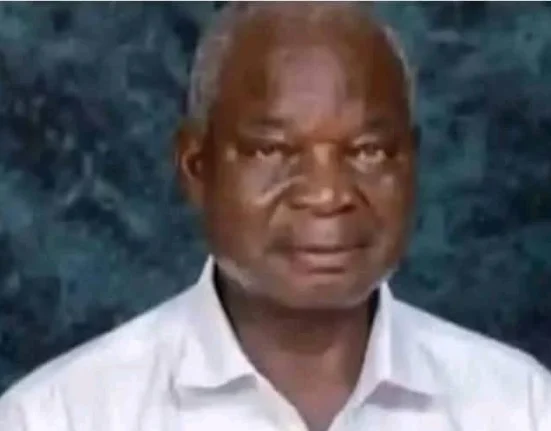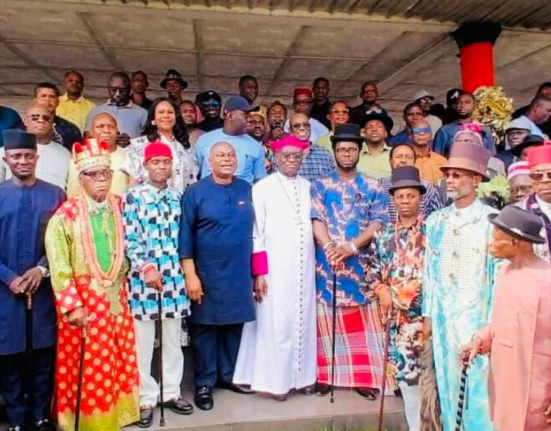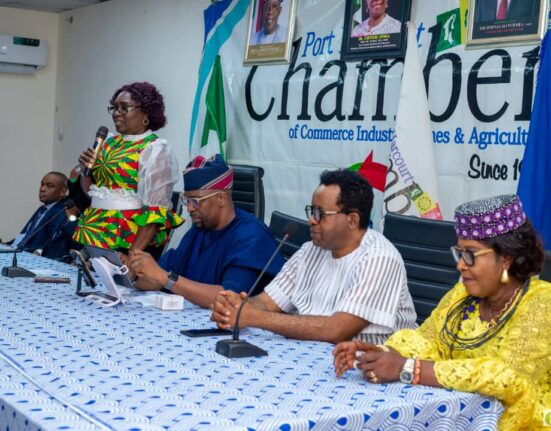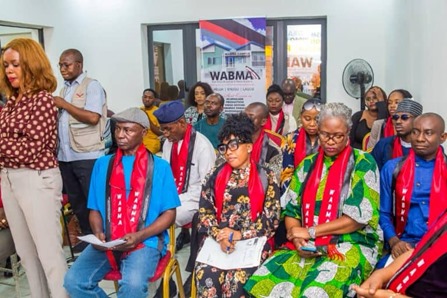A fast-rising non-governmental organization in Rivers State, Healthy Life Development Initiative (HELDi), which has become known for campaigns against Sexual and Gender-based Violence (SGBV), has taken interest in environment and sanitation.
Now, HELDi has stormed Odagwa community in Etche Local Government Area of the State with an event, titled; “Building Resilience: Sensitizing Marginalized Communities in Oil-Impacted Areas on Environmental Pollution and Survival Strategies.”
This seems to be a timely intervention aimed at raising awareness and strengthening local capacity among residents of Odagwa, a highly oil-polluted community situated in the oil-rich but environmentally vulnerable Niger Delta region of Nigeria.
This strategic outreach focused on the pressing issue of environmental pollution, particularly the long-standing and devastating effects of crude oil exploration, gas flaring, and oil spillages that have persisted in the region since the 1950s.
The report of the event said that over the decades, these activities have inflicted severe ecological damage, including the contamination of farmlands and water bodies, resulting in rising health complications and, in many cases, premature deaths.
Unfortunately, the report went on, many of these effects remain poorly understood by marginalized and vulnerable populations due to limited awareness and access to accurate information.
The programme was said to have recorded a remarkable turnout and inclusive participation, bringing together traditional rulers, including Eze Samuel Odum, other community leaders, women, men, youth, adolescents, and persons with disabilities (PWDs).
Their active involvement underscored a collective sense of urgency and a readiness to adopt protective measures and abandon practices that further contribute to environmental degradation and public health crises.
Dr. Mfon Utin, the Coordinator of HELDi, delivered the opening remarks. She expressed deep appreciation to all stakeholders for their presence, support, collaboration, and solidarity. She noted that Odagwa was deliberately selected for this project because of its prolonged exposure to oil pollution and the notable absence of targeted interventions. Dr. Utin highlighted that many residents, often unknowingly, continue to farm on contaminated land and rely on polluted water sources for domestic use, practices that pose serious health risks and ecological threats. She emphasized the urgent need for increased education and support to enable communities to make safer and healthier choices.
The sensitization session was said to be facilitated by Ms. Elizabeth Onyewuchi, a dedicated public health officer, with support from Dr. Utin. “To ensure effective communication and inclusivity, the session was conducted in English, Pidgin, and the local dialect. The facilitators explained in clear and accessible terms the causes, effects, and prevention of pollution, particularly from crude oil-related activities. They encouraged participants to discontinue harmful practices and adopt behaviors that promote environmental preservation and personal well-being.
“A powerful drama presentation was staged to deepen understanding. It portrayed women unknowingly farming on contaminated land and consuming polluted water, which led to severe health issues such as food poisoning, chronic illness, and untimely death. The performance triggered emotional responses among the audience and effectively illustrated the direct connection between environmental pollution and community health.”
During the event, according to the report, placards bearing key messages on pollution prevention, women’s inclusion in climate justice efforts, calls to action, and the need for community-driven environmental protection were displayed and explained in simple terms. “These messages reinforced the key takeaways of the session and stimulated further engagement. Participants, young and old, able-bodied and persons with disabilities, shared their personal stories and expressed their concerns in their preferred languages, creating an inclusive and participatory atmosphere.”
In a critical segment of the event, Dr. Utin was said to have introduced innovative survival and adaptive strategies, urging the community to explore safer agricultural practices in response to polluted environments.
She advocated for climate-smart techniques such as sandbag gardening, especially in areas affected by oil spills. She also highlighted the importance of diversifying income sources, adopting healthy lifestyles, and maintaining proper nutrition as protective strategies against environmental hazards.
A key highlight of the event was the participation of a representative, Mr. Amadi Chidike from the Rivers State Contributory Health Protection Programme, who was invited by HELDi to speak to the community.
Addressing the audience in the local dialect, Mr Chidike elaborated on the provisions of the state’s free medical scheme and encouraged residents to take advantage of available healthcare services at nearby facilities for themselves and their families. The community received this information with enthusiasm and gratitude, using the opportunity to appeal for the establishment of a healthcare center in Odagwa. They also requested that the services of the Rivers State Contributory Health Protection Program be expanded with more free services to address their growing health needs of the vulnerable populations.
In the closing segment, the Youth President, Mr. Emmanuel Amadi, passionately urged women to refrain from using harmful chemicals such as herbicides on crops and to advise their children to avoid activities that contribute to pollution and pose health risks. He stressed the collective responsibility to protect the land for future generations.
The traditional ruler, the Ochimba of Odagwa, Eze Samuel Odum, also gave a heartfelt address. He appealed to Dr. Utin and HELDi to continue their advocacy and awareness efforts and to remain a strong voice for the people of Odagwa.
He called for urgent government intervention to halt the worsening pollution that threatens not only the current population but also generations yet unborn.
The Woman Leader, Mrs. Monica Agbam, expressed appreciation on behalf of the women and requested further capacity-building engagements and skill acquisition support for vulnerable women in the community.
Participants openly shared their distressing experiences, lamenting the destruction of livelihoods due to the loss of fertile farmlands, clean water sources, and natural biodiversity. They also voiced concerns about ongoing threats from herdsmen who invade farms, destroy crops, and, in some cases, provoke violent conflict, further compounding the region’s environmental, economic, health, and security challenges.
In conclusion, the community sensitization program served as a powerful platform for education, empowerment, and grassroots mobilization. It strengthened local capacity to advocate for sustainable solutions, environmental justice, and health equity. HELDi reaffirmed its unwavering commitment to standing with marginalized communities and amplifying their voices in the fight for a healthier, safer, and more sustainable Niger Delta.
“We sincerely appreciate the generous support of Global Greengrants Fund (GGF), whose contribution made this program a reality,” Dr Utin stated.









Leave feedback about this